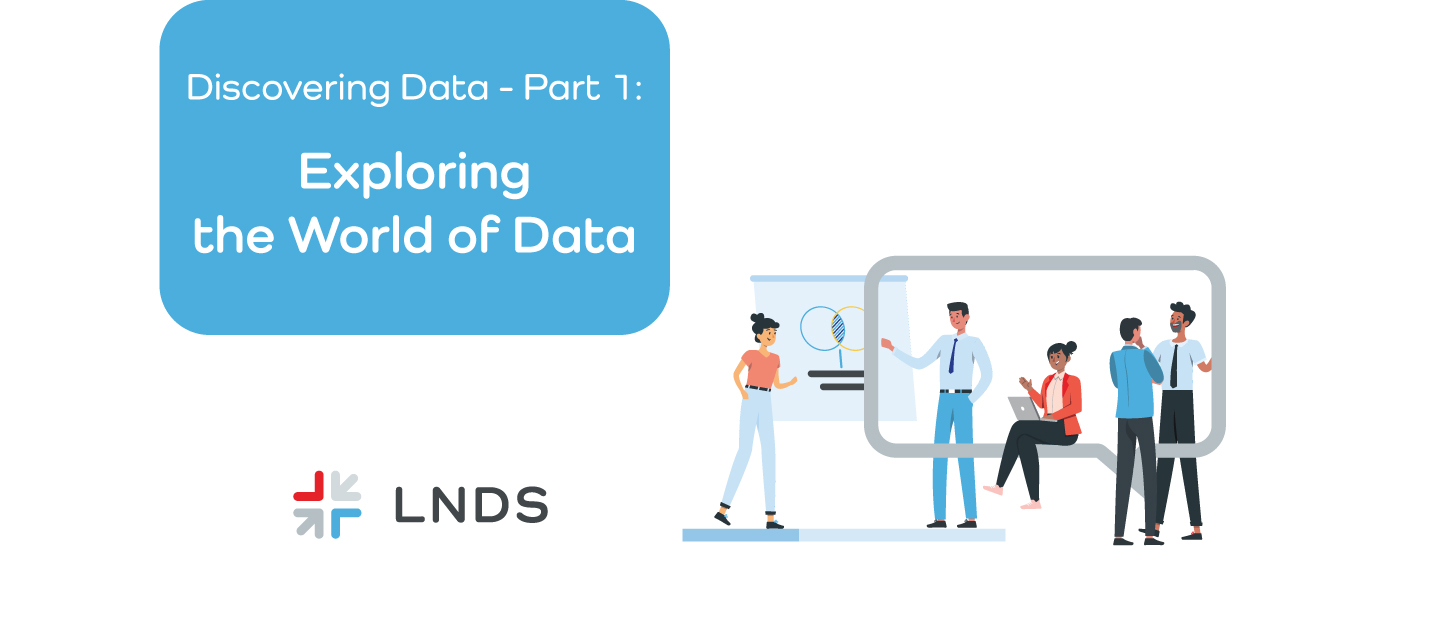
Discovering Data – Part 1: Exploring the World of Data
Welcome to our new blog series dedicated to the diverse world of data. On this journey, our goal is to delve into the various dimensions of data; exploring its definition, meaning, and the role it plays in the modern world. Divided in three different blogs, this series aims to provide insight and foster a deeper understanding of data in various forms. In this first chapter, we aim to answer the question “What is Data?”.
Read the full blog or watch our short video presented by our CEO, Bert Verdonck, to dive deeper into this fascinating topic!
Data: A gift to appreciate and understand
The term “data” comes from the Latin verb “dare”, meaning “to give”. This etymology is truly a reminder that we should view data as a gift, a precious resource of value.
As we enter the digital age, it’s important to appreciate and handle data with the care and respect it requires. In a legal context, data refers to the “grounds whereon to proceed, or facts from which conclusions are drawn”, says Bert. These definitions emphasise the fundamental role that data plays in decision-making and knowledge creation. Broadly speaking, data includes any known fact or recorded information. This broad definition highlights the versatility and universality of data in our daily lives.
Let’s never forget we should consider data as a gift!
Bert Verdonck, CEO
Technical and Philosophical aspects of Data
From a technical point of view, we can describe data as a set of values about one or more people or objects. In computers, data refers to any sequence of one or more symbols. However, data in its raw form often requires undergoing a process of interpretation, that will transform it into useful information. This process of interpretation is crucial in making data meaningful and actionable.
Philosophically, data is a complex and multilayered concept. Philosophers argue that we can never directly access the true nature of a data point. Instead, we need to observe and translate it into an observable form, such as a number or code. The observer effect in physics, which states that the act of observation can disrupt the system being observed, closely relates to this idea. Consequently, our methods of observation and measurement influence our interpretation of data.
The observer effect highlights the inherent challenge in claiming any data as purely “raw.” Since we must process and interpret all data to understand it, the notion of “raw data” becomes somewhat paradoxical. This means that what we often consider as raw data is already subject to interpretation and transformation. Therefore, we need to emphasise the importance of acknowledging the layers of meaning and context embedded in data.
The importance of interpretation and organisation of Data
When we try to understand and use data, we must process, organise, and structure it to become meaningful information. The real power of data lies in this transformation. By transforming raw data into well-organised information, you can gain insights, drive innovation, and make informed decisions.
LNDS commits to advancing the understanding and application of data through both national initiatives and international cooperation. On a national level, we work closely with local partners such as Luxinnovation, MyConnectivity, and the Luxembourg Institute of Health, to enhance Luxembourg’s data capabilities and infrastructure. Internationally, our participation in various European projects, such as Elixir, EOSC-ENTRUST, HDAB LU, GDI, B1MG, and more, reflects our dedication to contributing to the global knowledge space. This dual focus ensures that we are at the forefront of data innovation both locally and globally.
Looking to the future
As we launch this blog series, we invite you to join us on this exciting exploration of data. In our next blog, we’ll dive into the interesting concept of Personal Data. So, take your chance to explore this broad subject as defined by the GDPR, including how easily individuals can be identified in today’s interconnected world and the distinction between personal and non-personal data.
Together, let’s embrace data as a precious gift and unlock its full potential through careful analysis, thoughtful interpretation, and collaborative efforts.
Stay tuned for our upcoming posts and be sure to subscribe to our newsletter for the latest updates and insights!


